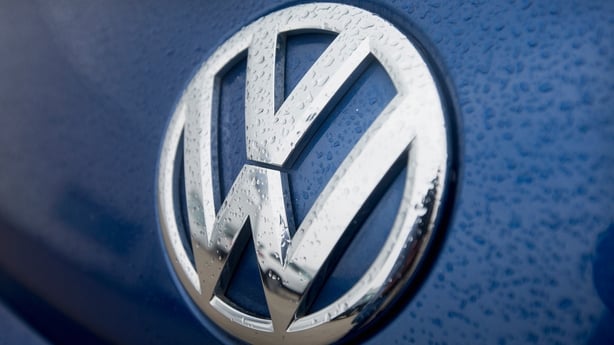Volkswagen today cut €1 billion from its investment plan for next year, as the German carmaker braces for a multi-billion-euro hit from its emissions cheating scandal.
The supervisory board of Europe's biggest auto manufacturer said it would cap spending on property, plant and equipment at around €12 billion in 2016, down about 8% on its previous plan of around €13 billion.
Volkswagen is battling the biggest business crisis in its 78-year history after admitting in September that it cheated US diesel emissions tests.
It said earlier this month it had also overstated fuel consumption in some vehicles.
Analysts have said the scandal could cost the company €40 billion or more in fines, lawsuits and vehicle refits.
"We are operating in uncertain and volatile times and are responding to this," the company's chief executive Matthias Mueller said in a statement.
"We will strictly prioritise all planned investments, anything that is not absolutely necessary will be cancelled or postponed," he added.
The cut in capital spending is VW's first since the height of the financial crisis in 2009.
Some analysts have long urged the company to reduce spending and become more efficient, with profit margins at its mass-market namesake brand lagging those at rivals.
They have suggested the emissions scandal could provide an opportunity for management to force through changes that otherwise might have been resisted by the company's powerful trade unions, and ultimately boost VW shares.
Amid fears the emissions scandal could hit sales of diesel vehicles, Mueller said VW would increase spending on alternative technologies such as electric and hybrid vehicles by €100m next year compared with previous targets.
He said construction of a planned new design centre in VW's home town of Wolfsburg was being put on hold, saving about €100m, while the construction of a paint shop in Mexico was under review.
In the model range, the successor to the high-end Phaeton saloon, an electric model, is being delayed.
US probes Bosch in VW cheating scandal - sources
US authorities are investigating German car supplier Robert Bosch over its role in Volkswagen's scheme to cheat US emission standards, according to people familiar with the matter.

Federal prosecutors with the US Department of Justice are examining whether Bosch, the world's largest auto supplier, knew or participated in Volkswagen's years-long efforts to circumvent US diesel emissions tests.
Bosch built key components in the diesel engine used in six Volkswagen models and one Audi model that the automaker has admitted to rigging to defeat emissions tests.
Federal authorities are also investigating how deeply the scheme permeated VW’s hierarchy.
The probe is at an early stage and there is no indication that US prosecutors have found evidence of wrongdoing at Bosch, the people added.
Volkswagen has admitted to installing software that allowed its 2 litre diesel models to pass US clean air tests, while shutting off emissions control systems when its diesel cars are actually on the road.
VW said in September that around 11 million diesel powered cars were affected worldwide, including 482,000 in the US.
A Bosch spokeswoman declined to comment. A Department of Justice spokesman also declined to comment.
Bosch provides the engine control module, called EDC17, and basic software for nearly all the four-cylinder diesel cars sold in North America, including Volkswagen and Daimler's Mercedes-Benz.
Those systems regulate how a vehicle cleans burned-up fuel before it is expelled as exhaust.
Volkswagen had the engine software modified to turn on the vehicle's emission control system when it was being tested in the lab, then turn it off when the vehicle was on the road, according to US regulators.
For authorities to bring charges against Bosch, they would have to prove the supplier knew that their technology was being used by Volkswagen to evade emissions requirements, said Daniel Riesel, a US environmental attorney.
"If you know that a crime is being committed and you actively facilitate part of the crime you are on the hook," Riesel said.
But it is not clear what role Bosch played, how closely it worked with VW to modify the engine management software and how much it knew about VW's intentions to use software to cheat on emissions standards.
Bosch, a dominant supplier of the components used in “clean diesel” cars, was an early promoter of their adoption in the US market.
The Germany-based private company has lobbied US lawmakers since at least 2005 for laws to promote advanced diesel technology, according to congressional records.
Bosch told Reuters previously that the company supplies components such as engine management systems to automakers' specifications, and that "how these components are calibrated and integrated into complete vehicle systems is the responsibility of each automaker."
A Volkswagen spokeswoman declined to comment on the investigation.

